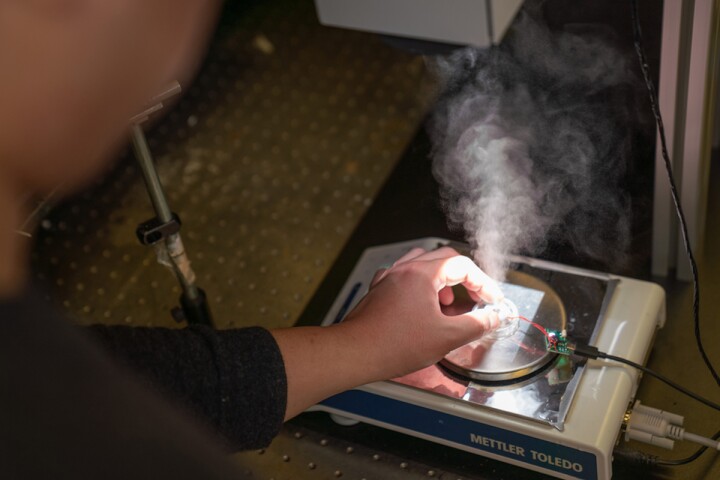Good news if you're hooked on chocolate. Researchers from Ghent University in Belgium and the University of Ghana have developed a new technique for making chocolate that results in it being both healthier and more flavorful. The technique differs from conventional chocolate production in that cacao beans are roasted at a lower temperature and bean pods are left unopened for five days rather than split open right away. It is expected to be particularly useful in countries where cacao beans have less natural flavor and antioxidant activity.
Cacao beans/seeds are normally removed from their pods shortly after these get cut from cocoa trees. The beans then go through a fermentation process that basically involves them sweating in baskets for a number of days, which causes a series of chemical changes that break down the sugar and plant embryo and prepare them for the next stage (after drying): roasting. The beans get roasted for 10-20 minutes at 248-266° F (120-130° C), bringing out the flavor but killing most of the polyphenols (antioxidants).
Scientists believe that polyphenols have a significant health benefit, with links to reduced risk of heart disease, cancer, and neurological diseases. Emmanuel Ohene Afoakwa, lead researcher on the study, sought to find a way to retain more polyphenols and to enhance the flavor of commercial chocolate. Noting that in Ghana farmers are required to store cacao beans for five days prior to fermentation, Afoakwa and his team decided to test the effect a pod storage step has on polyphenol content.
The researchers divided 300 pods into four groups. One group was not stored at all but rather fermented right away, while the rest were stored for three, seven, or 10 days before processing. The seven-day "pulp preconditioning" resulted in the highest antioxidant activity after roasting.
Normally in chocolate production, higher polyphenol concentration comes at the expense of taste – more polyphenol means more bitterness (which is an undesirable trait in chocolate). But Afoakwa believes that pulp preconditioning allows the white pulp (which is sweet) that surrounds beans inside the pod to alter the biochemistry within the beans prior to fermentation.
Afoakwa explained at a press conference this week that the pulp preconditioning process is why cocoa from Ghana has a much more intense flavor than cocoa from many other parts of the world. He also suggested that the technique will be particularly useful in countries around Southeast Asia and Latin America where cocoa beans produce chocolate with a less intense flavor.
The researchers also found a link between roasting and antioxidant activity. They determined that beans roasted at 242° F (117° C) over 45 minutes retained more polyphenol than those roasted with the conventional method.
Afoakwa's team will now study in more detail how roasting affects the flavor, and they will work to optimize the storage times and temperatures for maximal flavor and antioxidants.
A paper describing the research was published in the African Journal of Food, Agriculture, Nutrition and Development.
Source: American Chemical Society




